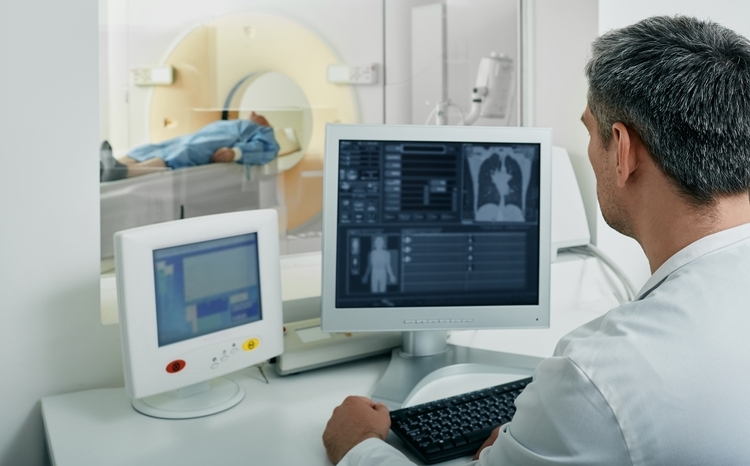Digital Health Coffee Time Briefing ☕
- 26 February 2024

Your morning summary of digital health news, information and events to know about if you want to be “in the know”.
???? News
Researchers from Oxford University’s Nuffield Department of Orthopaedics, Rheumatology and Musculoskeletal Sciences (NDORMS), University College London and the Centre for Ethnic Health Research, supported by Health Data Research UK, have for the first time studied the full detail of ethnicity data in the NHS. They outline the importance of using representative data in healthcare provision and have compiled this information into a research-ready database. The new study, published in Nature Scientific Data, is the first part of a three-phase project that aims to reduce bias in AI health prediction models which are trained on real-world patient data.
Lifebit, a provider of genomics and health data software, has announced its expansion into Asia Pacific and Japan (APJ) with its new regional operation headquartered in Singapore. These R&D efforts in collaboration with Synapxe, Singapore’s national HealthTech agency, will serve to advance precision medicine initiatives across the APJ region. It will enable Lifebit to support vital precision medicine research in the region with its patented federated technology platform for genomics and biomedical data.
A French start-up that transforms cardiology through an AI-driven digital twin of a patient’s heart, created from pre-operative CT and MRI scans, has won a €20,000 cash prize as the winner of the prestigious 2024 European Institute of Innovation and Technology (EIT) Awards, announced in Brussels last week. inHEART uses artificial intelligence to identify clinical intervention targets prior to any procedure, enhancing precision medicine and improving patient outcomes. Over 5,000 cardiac patients have already benefitted from the technology, which streamlines catheter ablation and replaces single-use mapping catheters to reduce environmental impact. The business was supported by EIT Health, one of nine Knowledge Innovation Communities (KICs) dedicated to addressing the most significant pan-European challenges of our time. EIT Health worked with inHEART to navigate the complex regulatory pathway to market, and provided R&D funding which contributed to the inHEART team’s growth and success.
Aptar Digital Health, a global leader in digital health solutions (Software as a Medical Device (SaMD) and digital Patient Support Programs), connected devices and disease management, today announced that it has acquired Healint, a digital health company recognised for its virtual clinical studies, real-world evidence and patient registries platform, as well as the Migraine Buddy and Clarrio mobile apps, which support patients suffering from neurological and immunological conditions. The acquisition of Healint aligns with Aptar Digital Health’s strategy to broaden its portfolio in neurology and strengthen its global footprint for digital health deployment. The expanded capabilities include patient community management, patient activation, Artificial Intelligence- (AI) based data collection and analysis, as well as digital diagnostics to facilitate patient screening and identification.
UC San Francisco scientists have found a way to predict Alzheimer’s disease up to seven years before symptoms appear, by analysing patient records with machine learning. The conditions that most influenced the prediction of Alzheimer’s were high cholesterol, and for women, the bone-weakening disease osteoporosis. The work demonstrates the promise of using artificial intelligence (AI) to spot patterns in clinical data that can then be used to scour large genetic databases to determine what is driving that risk. The researchers hope that one day it will hasten the diagnosis and treatment of Alzheimer’s and other complex diseases.
❓ Did you know that
Despite the growing demand for virtual healthcare solutions, patients still harbour apprehensions over the use of AI in medical diagnosis, according to a survey from The Clinic by Cleveland Clinic, a joint venture between Cleveland Clinic and telehealth giant Amwell. The survey found the availability of virtual second opinion (VSO) services made it far more likely for respondents to follow through with seeking a second opinion, with 89% noting they would be very or somewhat interested in obtaining a VSO if faced with an important medical decision. At the same time, nearly four in ten respondents expressed reservations about seeking a second opinion if AI tools were involved in the diagnostic process, favouring traditional provider-driven approaches.
???? What we’re reading
In the years leading up to Russia’s invasion, Ukraine had become a burgeoning hub of clinical trials, particularly in oncology. The war put a hold on the vast majority of those studies. But as the country marks two years this week since the invasion — and as the war has dragged on without a clear end in sight — Ukrainian researchers and executives are increasingly urging companies to restart clinical trials, insisting that the advantages that lured drugmakers in the first place still make the country a desirable one in which to run studies, writes Andrew Joseph in STAT.
???? This week’s events
1 March 2024, Westminster Health Forum – Next steps for respiratory health services in England




